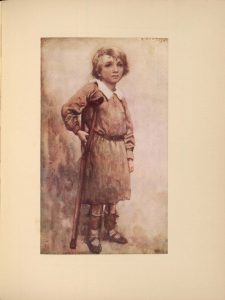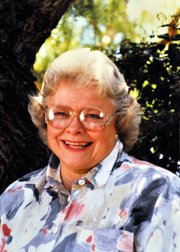Dreams from My Father
by Barack Obama
 The woman who inspected my bag at the security gate of the Playboy Jazz Festival noticed the copy of Dreams from My Father that I had packed along with the wine and cheese. “Have you read it?” I asked. “No,” she said, “I’m a Republican.”
The woman who inspected my bag at the security gate of the Playboy Jazz Festival noticed the copy of Dreams from My Father that I had packed along with the wine and cheese. “Have you read it?” I asked. “No,” she said, “I’m a Republican.”
If I had asked whether she had ever heard Dave Brubeck in concert, I thought, would she have said, “No, I’m Episcopalian?” I took my bag and went inside, sad, puzzled and troubled by ill omens of things to come. I thought of Danny Glover’s character in the movie Grand Canyon in one scene where he said, “Oh, man, things ain’t supposed to be this way.”
Something has gone terribly wrong lately in the way people talk to other people, and by “other people” I mean people who do not happen to come from the same tiny enclave, church, cable channel, blog, twitter-feed or political clan. I don’t know why. It does not seem to be limited to the right or left, the religious or secular. There is a visceral, almost toxic reaction people seem to now have about “Others” that shuts down all discussion, all willingness to see the world through others’ eyes or even acknowledge that others may have legitimate reasons for thinking the way they do.
This is my second review of the Barack Obama book, Dreams from My Father. The first one I threw away. Which is sad, because I thought it was a very interesting study of Obama’s story in light of Joseph Campbell’s universal Hero-myth, comparing Obama’s spiritual search for his father with the myths of Orpheus, Gilgamesh, King Arthur, and yes, even Star Wars and Harry Potter.
All very interesting, yet none of it, I’m afraid, convincing to a security guard at the Hollywood Bowl to whom the face on the cover is in itself a conversation stopper. She doesn’t know what the book is about, and she doesn’t want to know. I’ve tried to think of what I could have said to this person that would have made her even consider the possibility of opening up a copy of the book and reading a paragraph or two. I could have tried saying something like this:
“Politics aside, this is a great book. Not only may you be surprised by what you learn about the author and his story, but you might learn something about yourself as well. And who knows? Wonder of wonders, you may actually find that you are enjoying the process of reading a well-written and engaging book by a talented author.”
. . . . which would all be true, but even then I doubt that she would be convinced. One look at his face on the cover and there is simply nothing to discuss.
And so we arrive at a major theme of Obama’s book: How can people from different worlds and different tribes ever learn to communicate with each other? Unless we learn how to do that there is no hope.
Dreams from My Father was based on work originally commissioned in 1991 by book publishers seeking to capitalize on the notoriety of a young Obama, fresh out of law school, and the first black editor of the prestigious Harvard Law Review. He had intended the book to be a systematic analysis and discussion of race relations in America, but as he confesses in the introduction, “When I actually sat down and began to write, though, I found my mind pulled toward rockier shores.”
Rocky shores indeed. As the son of Barack Senior, a black African man and Stanley Ann, a white mid-western woman, Obama’s very DNA is of two worlds conventionally considered mutually exclusive and antagonistic. Whether it was with his black friends’ refrain “that’s just how white folks will do you” or when his white grandmother was scared by a panhandler – not because he was big, but because he was black – the same theme emerges: people with whom he identified talked with fear about scary people from a foreign world called them, and Obama realized that in both cases he was them. In Dreams from My Father, after learning of his grandmother’s fear, he wrote:
The earth shook under my feet, ready to crack open at any moment. I stopped, trying to steady myself, and knew for the first time that I was utterly alone.
Indeed, the book is prefaced with a biblical epigraph from I Chronicles 29:15: “For we are strangers before thee, and sojourners, as were all our fathers.” While the significance of the passage in referencing fathers is clear, the key I believe lies in the word sojourner, a stranger, passing through a place not his home.
The author has a talent for writing clean simple prose and allowing emotions to emerge in concrete external things. As the story opens, Obama has just received a long-distance phone call from a stranger who says that she is his Aunt Jane in Nairobi, Kenya with news that his long-absent father was killed in a car accident. He describes the moment like this:
That was all. The line cut off, and I sat down on the couch, smelling eggs burn in the kitchen, staring at cracks in the plaster, trying to measure my loss.
I love this passage. In one sentence the writer has marshaled all five senses into an elegant haiku about a single moment, the un-measurable despair dripping from the plaster cracks. The book is filled with such word-craft, making one eager to press on through the narrative for further rewards.
Though he initially planned to travel to Africa to attend the funeral, Obama decided at last not to go. In spite of this, the tragic event of his father’s death sets in motion the idea of a journey within Obama, a need to come to terms with the stories told about his father, and the stories he told himself, and a quest to find and reclaim his own identity and find a place called Home
In part one, Origins, he traces his childhood first in Indonesia and then Hawaii, growing up with his white mother and grandparents, attending college and ending with his memory of a brief and only visit from his father. He determines that he must somehow find him. In part two, Chicago, he embarks on an idealistic project working as a community organizer in the south side of Chicago. Things do not go well at first and the presence of machine politicians with agendas gums up the works. He eventually begins to have small victories, and in the process meets many people who later become significant in his life such as the controversial and outspoken Reverend Wright who coined the phrase “The Audacity of Hope.” In the third and final part, Kenya he travels to Africa and meets the Obama side of his extended family. He learns the long story of the Obama clan and the battles fought between his father and authoritarian grandfather. culminating in a profound and gut-wrenching epiphany by the author at the stone-covered grave of the father he never knew.
The people who populate his story are complex and three dimensional human beings. You care about them even if they sometimes annoy you. Obama does not let you off the hook with easy stereotypes such as the “Caring Mother” or the “Corrupt Chicago Mayor.” People have reasons for what they do and often have doubts. Even in his self-portrayal, Obama relates his inner thought processes and dialectic struggles, and admits that he does not know all the answers — in a way that makes me understand now why he can sometimes be infuriating to both sides of the political spectrum. For Obama, as for all of us, the answers are never simple and sometimes our opponents really do have valid points.
It is not a spoiler to tell you that in the end Obama returns from his vision-quest and the transformation at his father’s grave with newly found wisdom. If our security guard at the jazz festival could read only one passage from this book that is the distillation of the contents, I could do no better than recommend to her (and you) the concluding words Barack Obama addresses to his father regarding the great and dangerous powers of the modern world and its only hope:
…That this power could be absorbed only alongside a faith born out of hardship, a faith that wasn’t new, that wasn’t black or white or Christian or Muslim but that pulsed in the heart of the first African village and the first Kansas homestead – a faith in other people.



